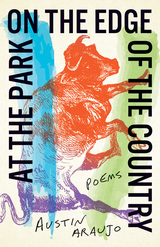
Poetic concision in abundance.
It was to celebrate the opening of the Roman Colosseum in AD 80 that Martial published his first book of poems, “On the Spectacles.” Written with satiric wit and a talent for the memorable phrase, the poems in this collection record the broad spectacle of shows in the new arena. The great Latin epigrammist’s twelve subsequent books capture the spirit of Roman life—both public and private—in vivid detail. Fortune hunters and busybodies, orators and lawyers, schoolmasters and street hawkers, jugglers and acrobats, doctors and plagiarists, beautiful slaves, and generous hosts are among the diverse characters who populate his verses.
Martial is a keen and sharp-tongued observer of Roman society. His pen brings into crisp relief a wide variety of scenes and events: the theater and public games, life in the countryside, a rich debauchee’s banquet, lions in the amphitheater, the eruption of Vesuvius. The epigrams are sometimes obscene, in the tradition of the genre, sometimes warmly affectionate or amusing, and always pointed. Like his contemporary Statius, though, Martial shamelessly flatters his patron Domitian, one of Rome’s worst-reputed emperors.
D. R. Shackleton Bailey’s translation of Martial’s often difficult Latin eliminates many misunderstandings in previous versions. The text is mainly that of his highly praised Teubner edition of 1990.

Poetic concision in abundance.
It was to celebrate the opening of the Roman Colosseum in AD 80 that Martial published his first book of poems, “On the Spectacles.” Written with satiric wit and a talent for the memorable phrase, the poems in this collection record the broad spectacle of shows in the new arena. The great Latin epigrammist’s twelve subsequent books capture the spirit of Roman life—both public and private—in vivid detail. Fortune hunters and busybodies, orators and lawyers, schoolmasters and street hawkers, jugglers and acrobats, doctors and plagiarists, beautiful slaves, and generous hosts are among the diverse characters who populate his verses.
Martial is a keen and sharp-tongued observer of Roman society. His pen brings into crisp relief a wide variety of scenes and events: the theater and public games, life in the countryside, a rich debauchee’s banquet, lions in the amphitheater, the eruption of Vesuvius. The epigrams are sometimes obscene, in the tradition of the genre, sometimes warmly affectionate or amusing, and always pointed. Like his contemporary Statius, though, Martial shamelessly flatters his patron Domitian, one of Rome’s worst-reputed emperors.
D. R. Shackleton Bailey’s translation of Martial’s often difficult Latin eliminates many misunderstandings in previous versions. The text is mainly that of his highly praised Teubner edition of 1990.

Poetic concision in abundance.
It was to celebrate the opening of the Roman Colosseum in AD 80 that Martial published his first book of poems, “On the Spectacles.” Written with satiric wit and a talent for the memorable phrase, the poems in this collection record the broad spectacle of shows in the new arena. The great Latin epigrammist’s twelve subsequent books capture the spirit of Roman life—both public and private—in vivid detail. Fortune hunters and busybodies, orators and lawyers, schoolmasters and street hawkers, jugglers and acrobats, doctors and plagiarists, beautiful slaves, and generous hosts are among the diverse characters who populate his verses.
Martial is a keen and sharp-tongued observer of Roman society. His pen brings into crisp relief a wide variety of scenes and events: the theater and public games, life in the countryside, a rich debauchee’s banquet, lions in the amphitheater, the eruption of Vesuvius. The epigrams are sometimes obscene, in the tradition of the genre, sometimes warmly affectionate or amusing, and always pointed. Like his contemporary Statius, though, Martial shamelessly flatters his patron Domitian, one of Rome’s worst-reputed emperors.
D. R. Shackleton Bailey’s translation of Martial’s often difficult Latin eliminates many misunderstandings in previous versions. The text is mainly that of his highly praised Teubner edition of 1990.


One-Way Street is a thoroughfare unlike anything else in literature—by turns exhilarating and bewildering, requiring mental agility and a special kind of urban literacy. Presented here in a new edition with expanded notes, this genre-defying meditation on the semiotics of late-1920s Weimar culture offers a fresh opportunity to encounter Walter Benjamin at his most virtuosic and experimental, writing in a vein that anticipates later masterpieces such as “On the Concept of History” and The Arcades Project.
Composed of sixty short prose pieces that vary wildly in style and theme, One-Way Street evokes a dense cityscape of shops, cafes, and apartments, alive with the hubbub of social interactions and papered over with public inscriptions of all kinds: advertisements, signs, posters, slogans. Benjamin avoids all semblance of linear narrative, enticing readers with a seemingly random sequence of aphorisms, reminiscences, jokes, off-the-cuff observations, dreamlike fantasias, serious philosophical inquiries, apparently unserious philosophical parodies, and trenchant political commentaries. Providing remarkable insight into the occluded meanings of everyday things, Benjamin time and again proves himself the unrivalled interpreter of what he called “the soul of the commodity.”
Despite the diversity of its individual sections, Benjamin’s text is far from formless. Drawing on the avant-garde aesthetics of Dada, Constructivism, and Surrealism, its unusual construction implies a practice of reading that cannot be reduced to simple formulas. Still refractory, still radical, One-Way Street is a work in perpetual progress.
READERS
Browse our collection.
PUBLISHERS
See BiblioVault's publisher services.
STUDENT SERVICES
Files for college accessibility offices.
UChicago Accessibility Resources
home | accessibility | search | about | contact us
BiblioVault ® 2001 - 2025
The University of Chicago Press









